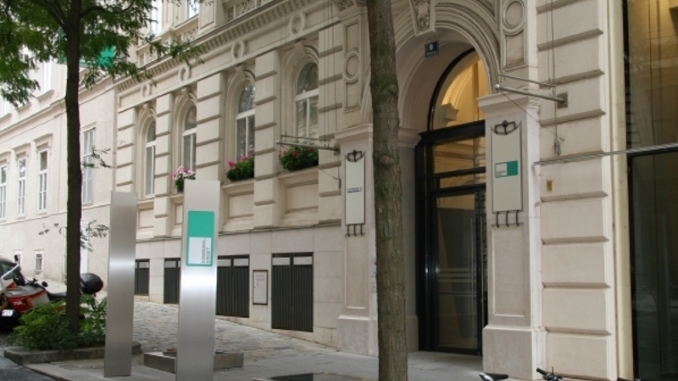
Kommunalkredit Austria expects most of its future covered bond issuance to be green or socially-orientated, according to an official at the bank, after it returned to the wholesale markets for the first time since its privatisation with an inaugural Eu300m social covered bond yesterday (Tuesday).
Georg Lehmann, head of investor relations at Kommunalkredit Austria, said the bank had carried out extensive preparations to assess the demand for such a social covered bond before announcing its return.
The deal is Kommunalkredit’s first public covered bond since 2014, with the issuer having been split into a going concern entity and the bad bank KA Finanz in autumn 2015, with the good bank sold by the Austrian state.
“Kommunalkredit has always been a bank engaged in social, green, and environmental infrastructure, so this kind of deal fits our business profile very well,” said Lehmann. “We quickly realised that labelling it a social covered bond, following our own framework of what a social covered bond is, would be the best way to re-enter the market.”
Leads Commerzbank, Deutsche Bank, ING and RBI launched the Eu300m four year issue yesterday morning with guidance of the low 40s over mid-swaps area, before guidance was revised to the 40bp area on the back of over Eu350m of orders, excluding joint lead manager interest.
The spread was then fixed at 38bp with the book closing at around Eu530m, including joint lead manager interest.
“After doing a lot of preparation, we went into this deal with confidence, and we feel it went very well,” said Lehmann. “We were pleased to find the demand strong enough to tighten the initial spread guidance quite substantially from the low 40s to a spread of 38bp.
The final book stood at over Eu500m. Fund managers were allocated 56% of the deal, banks 38%, central banks and SSAs 3%, retail investors 2% and insurance companies 1%. Accounts in Austria took 30%, Germany 30%, the Nordics 18%, the UK and Ireland 8%, Italy 7% and others 7%.
Around half of the deal was allocated to dedicated sustainable investors.
Just Eu10m was allocated to the ECB, one of the smallest CBPP3 tickets in an eligible covered for some time, according to bankers at the leads.
“There was a good oversubscription and the order book was quite granular,” said Lehmann.
Having returned to the covered bond market, Lehmann said that Kommunalkredit’s next priority will be senior unsecured issuance. He said the bank expects to issue one covered bond or senior unsecured bond per year.
“Most of these will be social or green issuances,” he said. “We cannot say yet for sure how many will be public issuances, but we will also carry out private placements.”
The deal was issued according to ICMA’s Green Bond Principles, and the issuer procured a second opinion on its social covered bond framework from Sustainalytics, a sustainability research and rating agency.
One factor that may limit potential buyers of Kommunalkredit’s covered bonds, bankers said, is the issuer’s relatively low covered bond ratings of Baa2/A (Moody’s/S&P). Both rating agencies cite currency mismatch in Kommunalkredit’s cover pool as a key issue. As of 31 May, 70.3% of Kommunalkredit’s outstanding covered bonds were Swiss franc-denominated, whereas almost all of its collateral is euro-denominated.
Kommunalkredit Austria has taken action to reduce currency mismatch in its cover pool – including a recent buyback of its Swiss outstandings – and shift to euro issuance. This resulted in Moody’s upgrading its covered bonds in March.
“Of course, with this Eu300m transaction, the mismatch is reduced even further today, and our Swiss franc issuance will mature over time,” said Lehmann. “We expect that this currency mismatch problem will be solved in the coming years, and this will result in better ratings for our covered bonds.”



